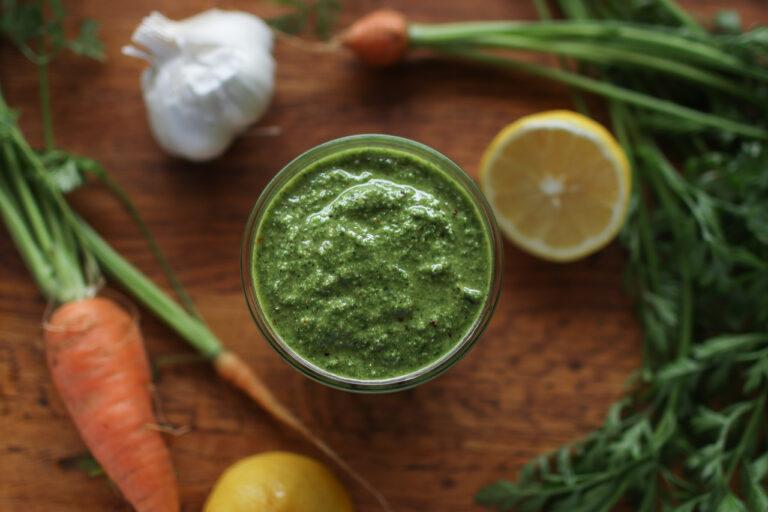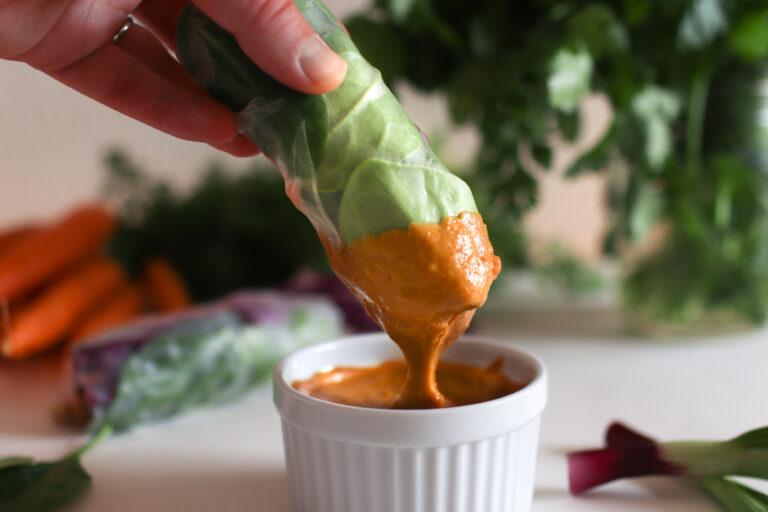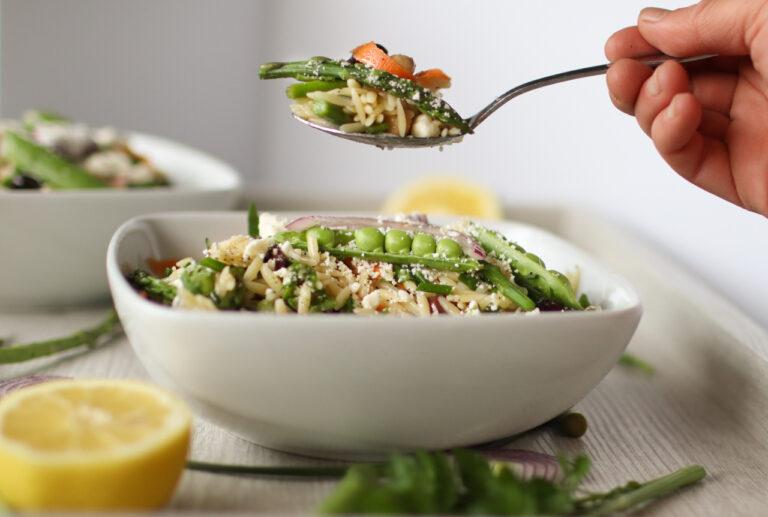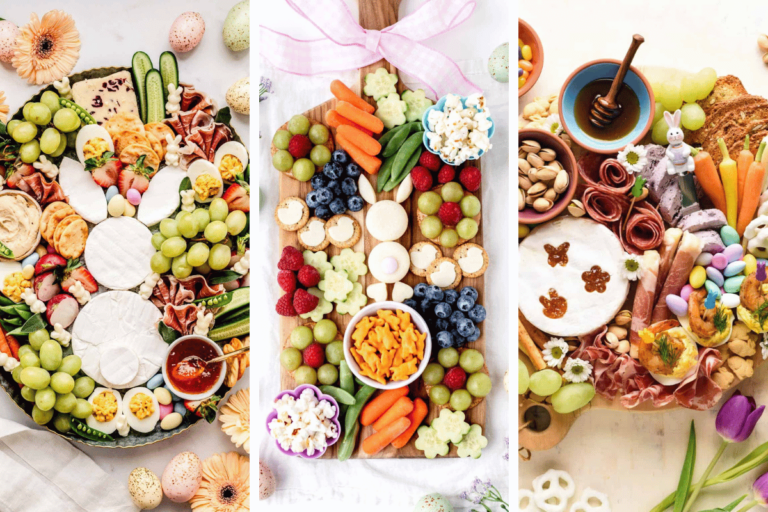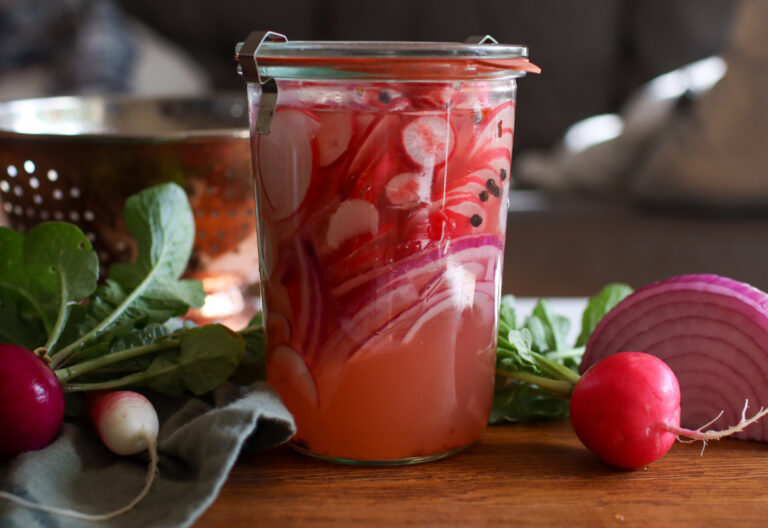Easy Chive Blossom Vinegar Recipe: A Quick How-To
This chive blossom vinegar is a fun and easy way to put those chive flowers to good use! With a vibrant pink color and a light onion flavor, this infused vinegar is great to use in all of your meals.

I always know summer is here when my chives begin to bloom. I look forward to those happy, purple flowers every single year.
Chives are an excellent culinary herb that I think everyone should grow! They are perennial, so you only need to plant them once for years of chive harvests. They are also lovely in the garden and delicious in nearly every savory dish. Chives are easy to grow and incredibly useful in the kitchen.
They also produce one of my favorite edible flowers: chive blossoms. These small, puffy flowers have a nice flavor with just a hint of onion. I enjoy having them in the garden (so do the bees!) and I always harvest some for a batch of this chive blossom vinegar.
If you want to make your own chive blossom vinegar, read on to learn how!

What are Chive Blossoms?
Chive blossoms are the purple, edible flowers that emerge from chive plants each year in late spring or early summer. If left alone, they will dry up and produce chive seeds. However, many gardeners enjoy harvesting the beautiful chive blossoms for culinary use.
Chive plants in their first year generally do not produce chives, but in the second year and beyond, chive blossoms are more than plentiful. For those who don’t have chive blossoms in their gardens, these lovely little flowers can often be found at farmer’s markets in bunches with fresh chives.
Chive blossoms make excellent garnishes for savory dishes and they are the key ingredient in this delicious infused vinegar recipe.
This post contains affiliate links. If you make a purchase through the links, I will earn a small commission at no cost to you. As an Amazon Associate, I earn from qualifying purchases. Read my full disclosure here.
Are Chive Blossoms Edible?
Yes, chive blossoms are edible and actually quite tasty! In fact, I included them in my list of the best edible flowers to grow in your garden.
The little flowers have a mild chive flavor and a beautiful color. The flowers are typically used as a savory garnish, either as whole blooms or as petals. The petals look like purple, edible confetti and are a really fun addition to any meal.
Besides edible garnishes, my favorite use for chive blossoms is this infused vinegar. It is a great way to preserve your chive blossoms and it is delicious.

Ingredients
Chive blossom vinegar couldn’t be easier, having only chive blossoms and – as you can probably guess – vinegar. Here’s what you need to know:
Fresh chive blossoms: Harvest your chive flowers when they are in full bloom for the best flavor. Feel free to substitute with the blossom of garlic chives for more of a garlicky flavor.
Vinegar: It’s best to use a clear vinegar such as white distilled vinegar or white wine vinegar.
I’ve never tried it, but I imagine champagne vinegar would be delightful as well!
How to Make Chive Blossom Vinegar
Harvest Your Chives
When the chive blossoms are in full bloom, pluck or snip them off of the chive plant. They don’t last long after that, so use them quickly.

Prepare the Chive Blossoms
Give the flowers a quick rinse under cold water to wash away any dirt of bugs. Place them onto a tea towel or paper towel and pat them dry. Pack the blossoms into a clean glass jar.
Make the Vinegar
Pour the vinegar into the jar up to the very top. Press down the chive blossoms to submerge them all under the vinegar. Cover the jar with a plastic lid or a metal lid with a piece of parchment paper under it. Vinegar causes the metal lids to corrode, so the parchment paper will act as a barrier between the vinegar and the lid.

Infuse
Allow the vinegar to infuse in a dark place for 1-2 weeks. The longer you leave it, the more strongly flavored it will be.
Strain
Strain the chive vinegar through a cheesecloth or a coffee filter. Discard the chive blossoms (I recommend composting them). Bottle the vinegar and use in homemade salad dressing and more!
Uses for Chive Blossom Vinegar
Chive blossom-infused vinegar is useful for just about anything you would typically use vinegar in! My favorite ways to use it are:
- Homemade salad dressings
- Refrigerator pickled veggies (like these pickled radishes)
- Add to soups for a bit of acidity
- Drizzle on sandwiches along with some oil
Chive blossom vinegar also makes a lovely gift. It’s a gorgeous shade of pink, it has a long shelf life, and just about anyone can find a use for vinegar! Put the infused vinegar in a glass bottle with a pretty label and use it for hostess gifts or as part of a foodie gift basket.

Frequently Asked Questions
Can I use apple cider vinegar or red wine vinegar?
You definitely can, though the color and flavor will vary. White vinegars with the mildest flavor allow the purple color and chive flavor to shine.
Is there a way to make this vinegar more quickly?
If you don’t have a week or two to wait, you can make chive blossom vinegar with the hot vinegar method. Warm your vinegar up on the stove, then pour it over your chive blossoms. Let it steep overnight before straining. The flavor and color will not be as good with this method, but it works in a pinch.
Need some inspiration for using your chives? Try this fresh chive butter recipe.

Easy Chive Blossom Vinegar
This chive blossom vinegar is a fun and easy way to put those chive flowers to good use! With a vibrant pink color and a light onion flavor, this infused vinegar is great to use in all of your meals.
Ingredients
- 1 cup fresh chive blossoms
- 1 cup vinegar of choice (see notes)
Instructions
- After harvesting your chive blossoms, wash them under cool water and pat dry with a towel.
- Pack the chive blossoms into a clean mason jar and fill it with vinegar to the top of the jar.
- Cover with a plastic lid or a metal lid paired with a piece of parchment paper.
- Allow the vinegar to infuse for 1-2 weeks in a cool, dark spot.
- Strain the vinegar and discard the spent blossoms. Store the vinegar at room temperature in an airtight jar or bottle.
Notes
Use a clear vinegar such as white wine vinegar or white distilled vinegar.


